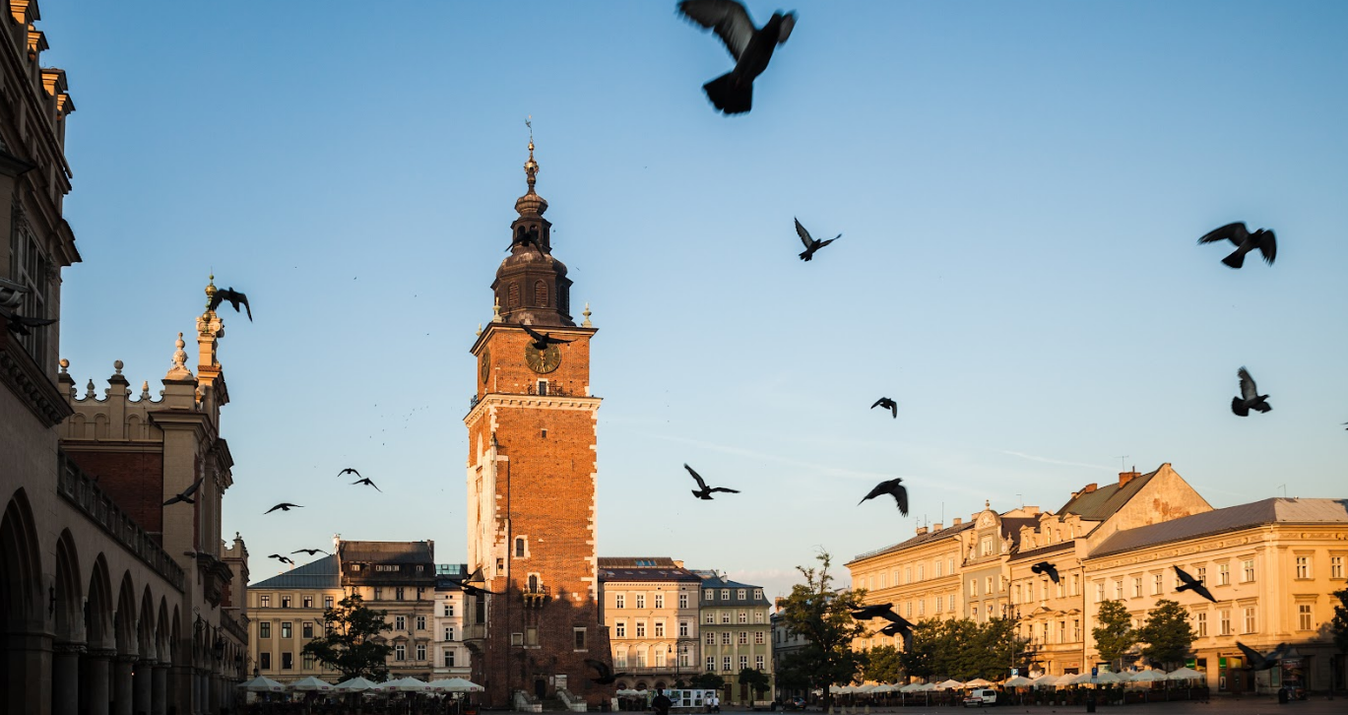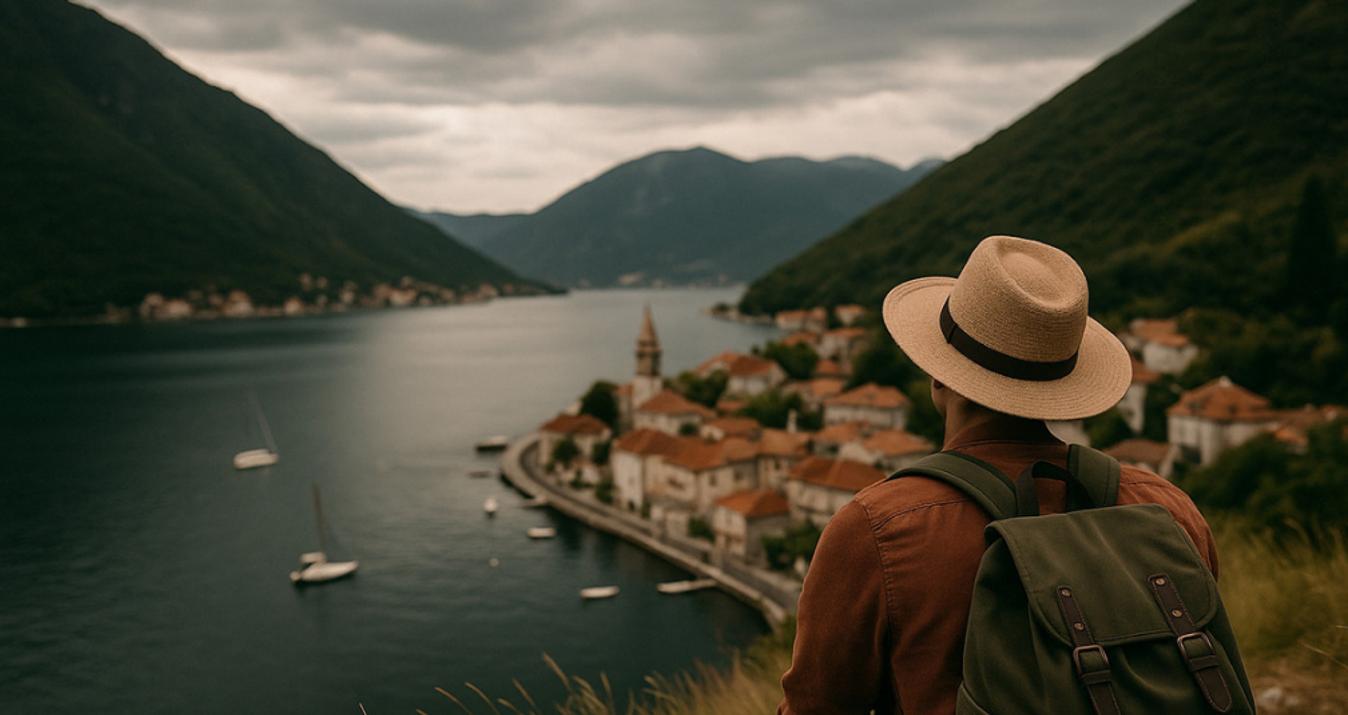Repetition Photography: The Art Of Symmetry And Balance
December 26, 2024
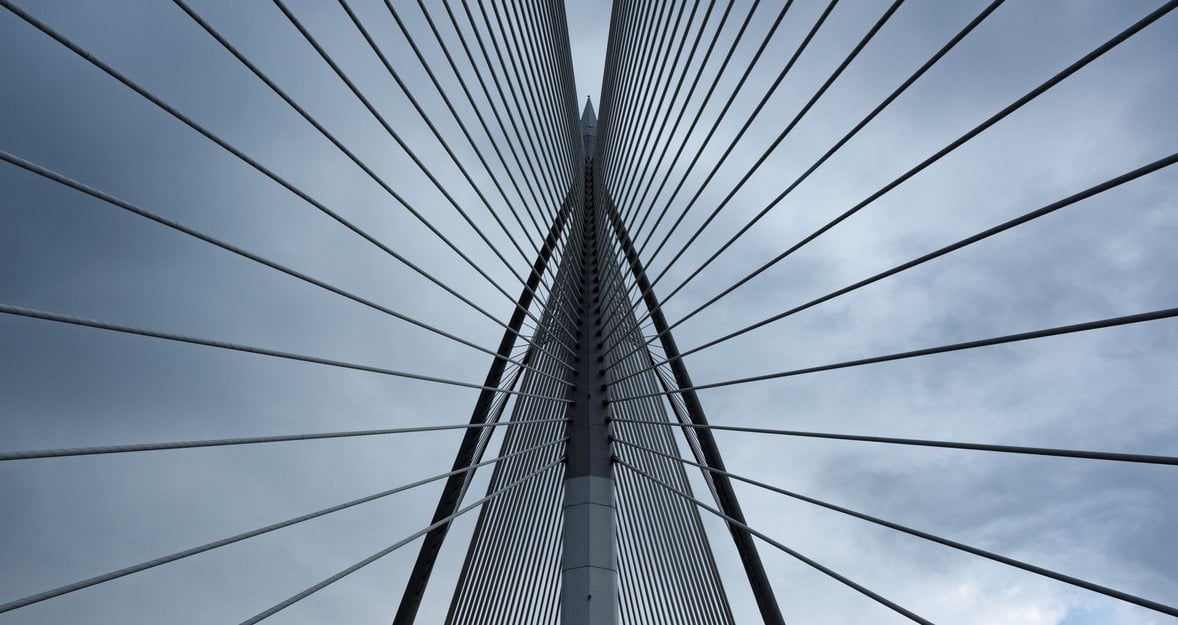
Learn About A Repetition Pattern - Mesmerizing Dance Of Lines, Shapes, And Textures. How To Use This Pattern In A Photography Composition.
Have you encountered a repetition technique in photography? This specific genre of photography explores the beauty inherent in patterns, sequences, and recurring motifs. It's where order meets creativity that can transform the mundane into the magical.
Imagine looking at a row of identical windows, the precise geometry of a honeycomb, or the repeating arches in a Gothic cathedral. Now picture those images captured in a photograph, where the photographer's keen eye for detail unveils the symmetry and balance in our everyday world.
Repetition photography is not simply about shooting multiple instances of the same object or pattern. It's about the rhythmic visual dialogue these elements create in the image, inviting the viewer's eye to dance from one point to another. It's about discerning the fine balance between the repetition of patterns and monotony, ensuring the image retains its intrigue and freshness.
What Is Repetition In Photography
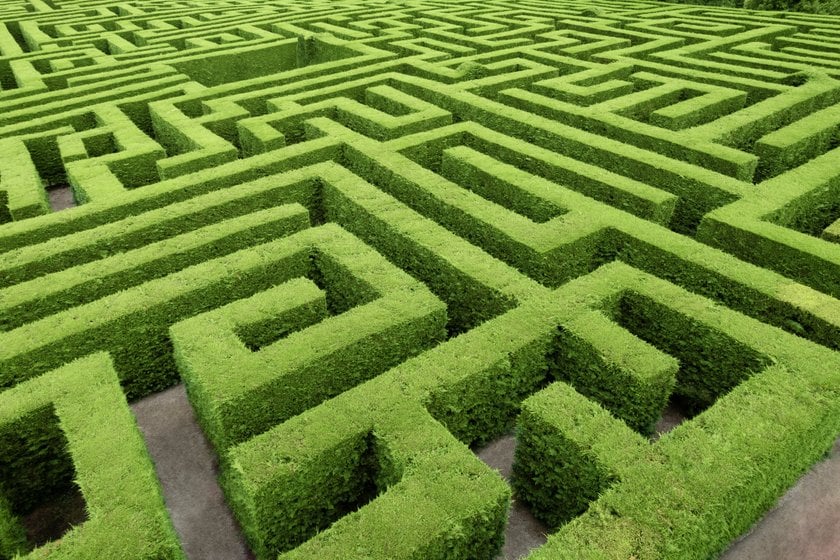
Repetition in photography is the technique of integrating recurring elements, patterns, or themes in a composition to produce a sense of rhythm and balance in an image. This can involve the repeated use of lines, shapes, colors, textures, or other visual elements that create a sense of consistency and uniformity.
The repetition photography examples could be anything—a row of trees, a series of arches, a field of sunflowers, or even a group of people dressed similarly. By echoing these elements throughout the image, the photographer guides the viewer's eye across the photograph, establishing a visual rhythm.
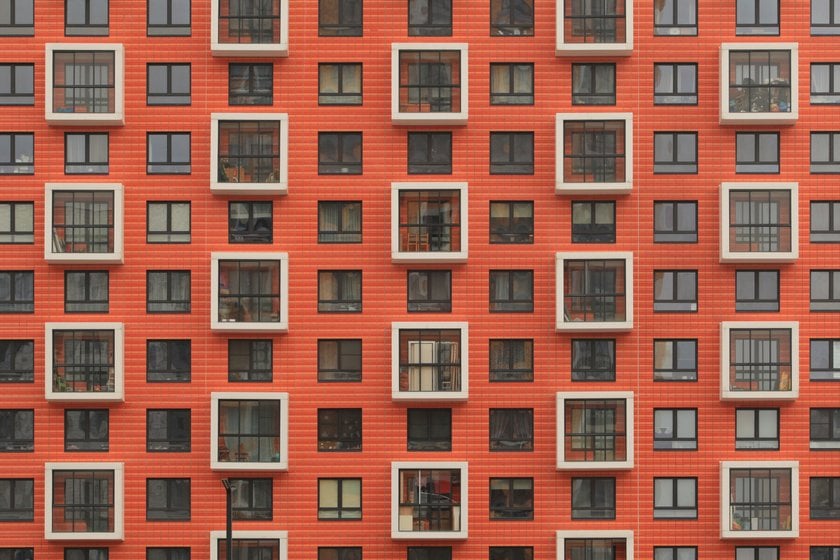
In essence, repetition becomes a powerful compositional tool that can lend harmony, structure, and visual interest to an image. Despite its seemingly simplistic approach, it can profoundly impact on the viewer, invoking emotions or sparking intrigue, thereby elevating the narrative strength of the photograph.
Types Of Patterns
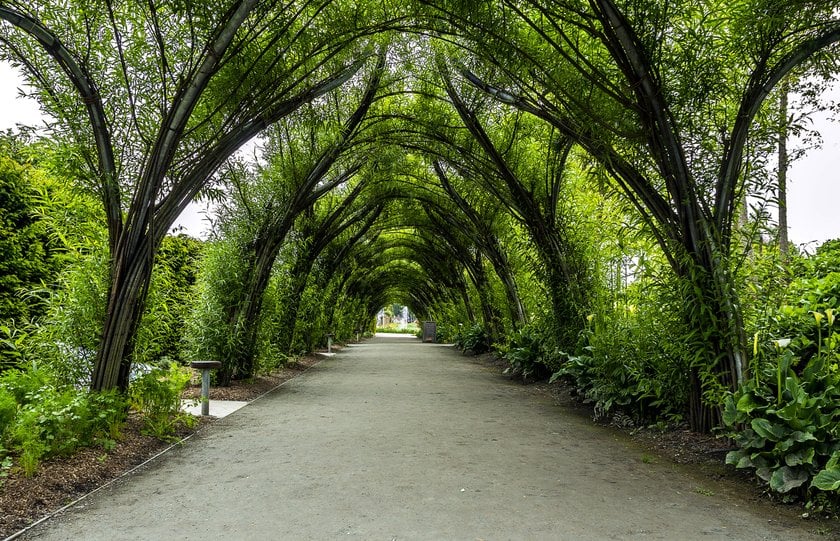
Repeating patterns photography includes many forms of patterns that can be categorized broadly into a few types. Each offers a unique aesthetic and can be used by photographers to invoke different feelings or to tell varied stories.
==cta_button_with_title_pic==
So, let’s take a closer look at them:
Geometric
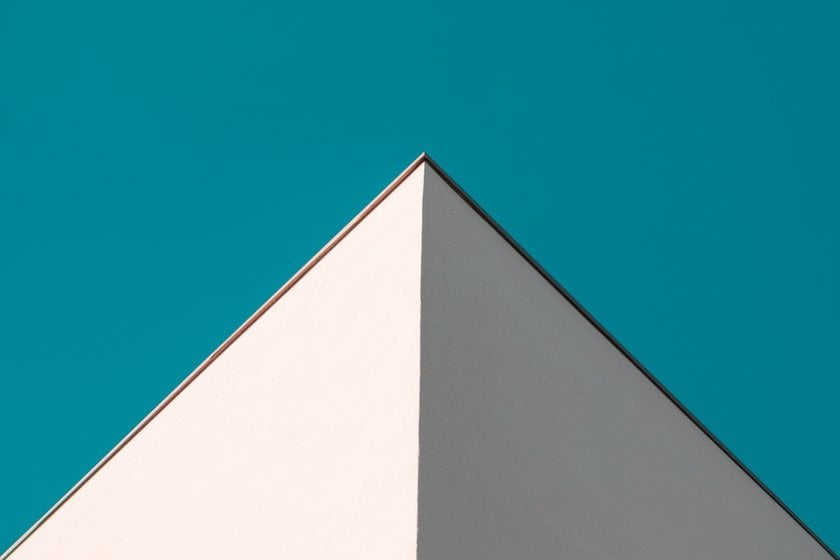
Geometric patterns and shapes hold a particularly esteemed place in repetition photography. These include all manners of lines, squares, rectangles, circles, and more complex shapes such as polygons, all of which can be repeated and arranged to create a sense of balance and symmetry.
Such patterns can be found both in natural and human-made structures. For example, a perfectly symmetrical spider web or the repeated squares and rectangles in a skyscraper facade all present exciting opportunities for repetition photography.
Geometric repetition plays a crucial role in establishing a strong visual rhythm, guiding the viewer's eye across the frame. It can evoke a sense of order, stability, and predictability. By creatively using these geometric repetitions, photographers can create compelling compositions that draw viewers in and captivate their attention.
Natural
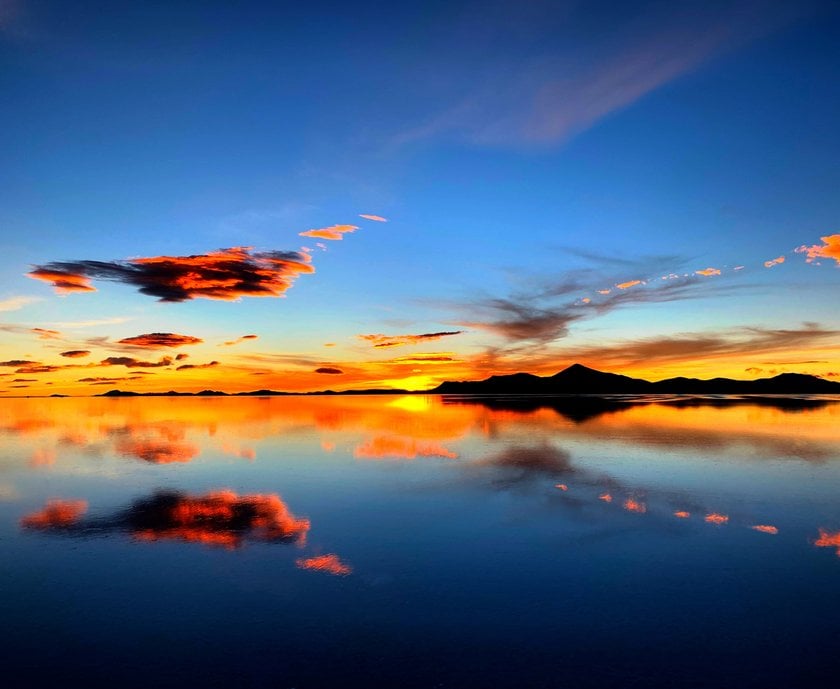
Natural repetition in photography encapsulates all patterns and sequences found organically in the natural world. From the grand display of trees lined perfectly in an orchard to the minute details of seeds arranged neatly in a sunflower, repetition is abundant in nature. Even in the chaos of a forest or the seemingly random arrangement of pebbles on a beach, a discerning eye can spot repeated patterns or textures.
Natural repetition is inherently pleasing to the eye, often inducing a sense of tranquility, harmony, or awe. Moreover, it serves as a reminder of the symmetry and balance inherent in the world around us.
As a photographer, capturing these natural repeating patterns can yield powerful images that resonate with viewers on a primal level, invoking a profound appreciation for the beauty and order in nature. It also presents an exciting challenge of spotting and creatively capturing these repetitions amidst the complexities of the natural world.
Textures
This type of repetition explores the repeated tactile and visual qualities of a surface, offering another dimension to the art of symmetry and balance. It’s important to highlight that understanding contrast in photography plays a key role in this aspect, as the difference between light and dark areas can highlight and exaggerate the textures even more.
This can involve anything from the rough, weathered texture of an old wooden door to the smooth, gleaming surface of glass windows on a building. When photographed up close, textures can become a repeating pattern, creating a sense of rhythm and harmony within the image.
The play of light and shadow on textured surfaces can further enhance this effect, adding depth and richness to the composition. A successful texture-focused image can stimulate the viewer's sense of touch, provoking a more immersive and sensory experience.
In the realm of the power of repetition photography, textures offer a creative way to elevate an ordinary scene into a captivating image, drawing attention to the overlooked details and enhancing the visual narrative of the photograph.
Rhythm
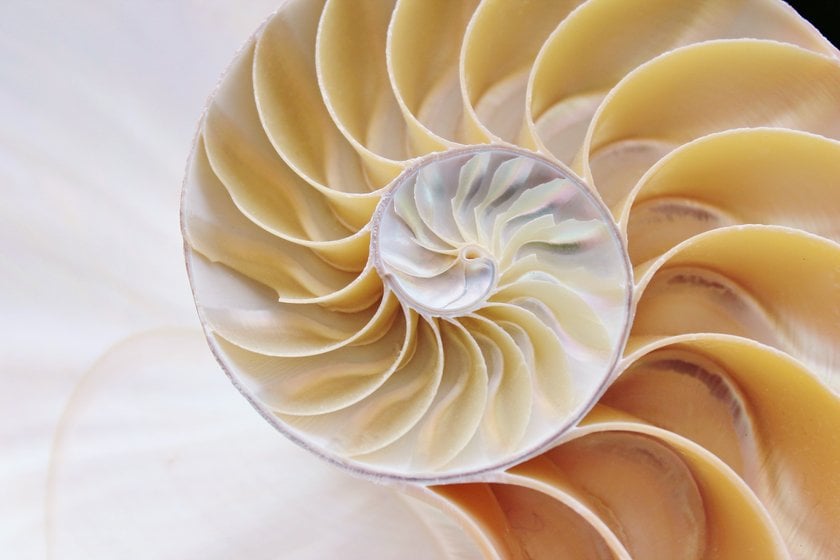
Rhythm patterns refer to the technique where repeating elements follow a specific order or progression, thus creating a visual rhythm or sequence within the frame. This can be seen in a row of street lamps receding into the distance, a line of ducks swimming in a pond, or a series of waves crashing onto a beach.
Such sequential patterns draw the viewer's eye through the image, leading them on a visual journey. Like a melody in a song, this rhythmic repetition can evoke a sense of movement, flow, and continuity. It can also create a sense of anticipation or tension as the viewer's eye anticipates the next element in the sequence. This rhythmic aspect can make an image more dynamic and engaging, infusing it with a sense of energy and life.
In the context of repetition photography, understanding and harnessing this rhythm or sequence can elevate the overall composition, making it more compelling and visually intriguing.
Symmetry
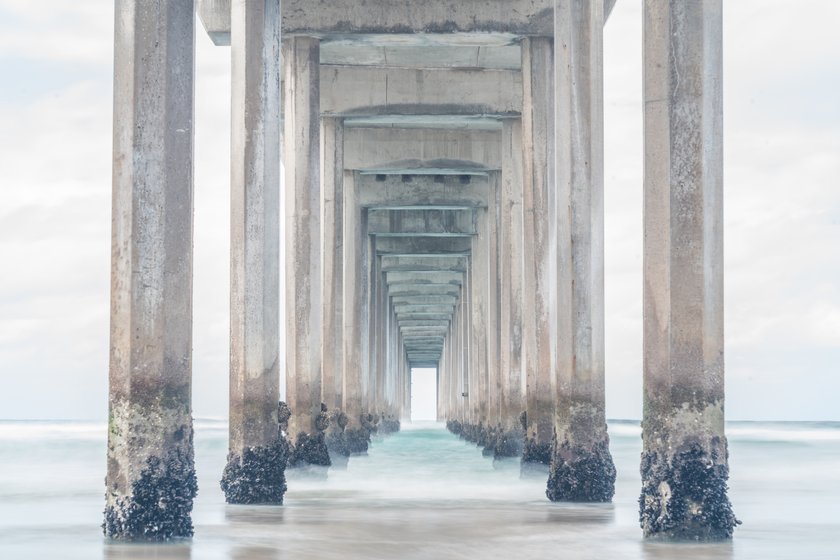
Symmetry in repetition photography is all about balance. It's when one half of a picture looks like a mirror image of the other half. You can find symmetry everywhere—in the reflection of trees on a still lake, in a building that looks the same on both sides or in a flower where petals spread out evenly from the center.
Symmetry makes a photo pleasing to look at because it creates a sense of order and predictability. But it's also fun to play around with because even a small change can stand out and make the picture more interesting. It's like a game for photographers, finding and capturing this perfect balance.
Abstract
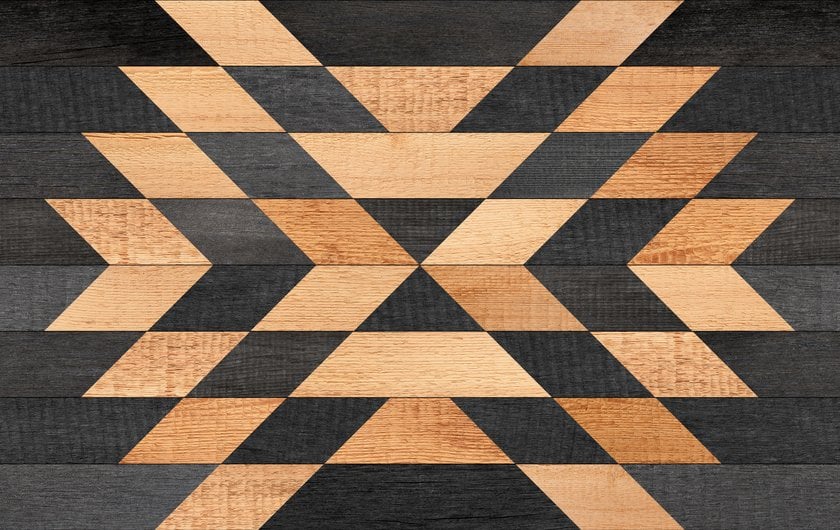
Abstract patterns don't immediately represent an identifiable object but rather capture and highlight elements such as color, form, and line in an unconventional or non-representational way.
This form of repetition can create images that are often subjective and open to interpretation. It may involve capturing close-ups of architectural details, focusing on the swirl of colors in a piece of glasswork, or framing the repeating lines in a field of crops in a way that emphasizes form over function.
The use of abstract patterns in repetition photography can produce striking, visually exciting images that challenge the viewer's perception, making them pause and delve deeper into the picture. It provides a way to see the world differently, breaking away from the literal interpretation and instead focusing on the intrinsic beauty of form, color, and composition.
Reflections
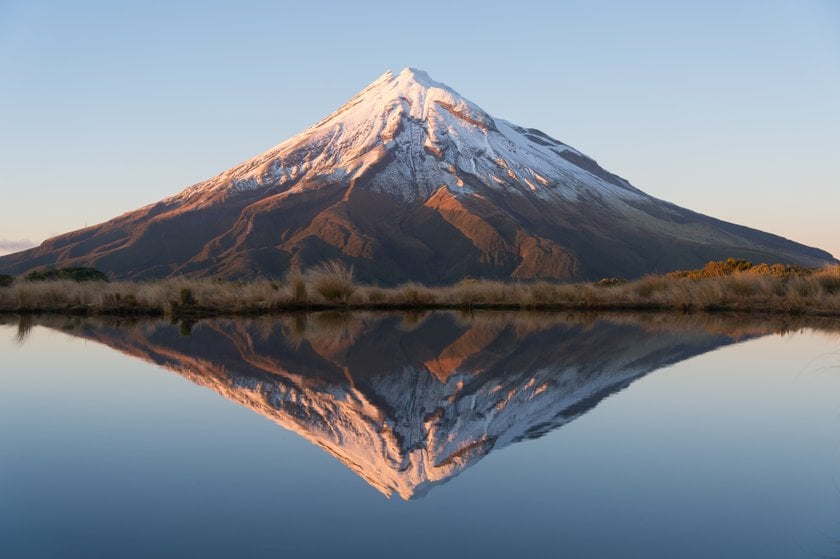
Reflections are about capturing mirror-like images that are reflected off surfaces like water, glass, or metal. These reflections can create stunning patterns that add a whole new layer to your photos.
Imagine the mirrored image of a tree line on a calm lake or a city skyline reflected on a glass building. These mirrored images can create a sense of symmetry and balance, doubling the visual impact. This technique can turn an ordinary scene into something more interesting and captivating. Plus, it's a fun challenge for photographers to spot these reflections and use them creatively in their compositions.
It's a great way to explore the world around you from a different angle and create some really unique photos.
Shadow
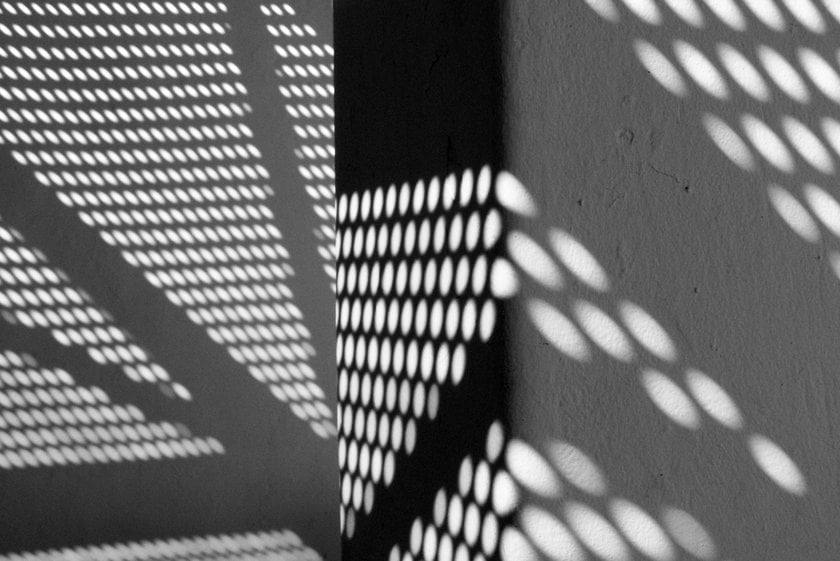
These shadow patterns in repetition photography refer to how light interacts with objects to create interesting shapes and forms on surfaces.
Picture how the afternoon sun makes tree shadows look long or how light from a window makes shapes on a wall. Shadows can add depth to a picture, giving a two-dimensional image a sense of three-dimensionality. They can also create repeating patterns that catch the eye and add visual interest to a photo.
The trick is to pay attention to the light around you and how it interacts with objects. This can be a fun and creative way to capture everyday scenes in a whole new light.
Repetition Of Subjects
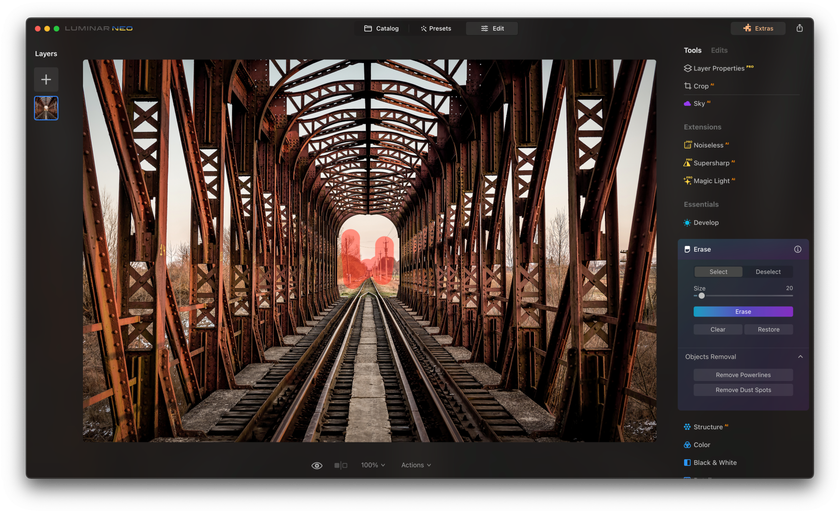
It is a simple but effective way to create appealing eye photos. It means photographing similar or identical objects arranged in a way that makes a pattern. With the advances in photo editing AI, like Luminar Neo, this process becomes even more engaging and manageable.
For example, you could capture a line of parked cars, a row of apples on a supermarket shelf, or even a group of people dressed in the same color. Sometimes an unwanted object might disrupt your perfect pattern. In such situations, Luminar Neo's ability to erase objects in a photo comes in extremely handy, helping you maintain the desired repetition.
This approach can turn an ordinary scene into something much more interesting and is a fun way for photographers to experiment and get creative with their shots.
Wrapping up
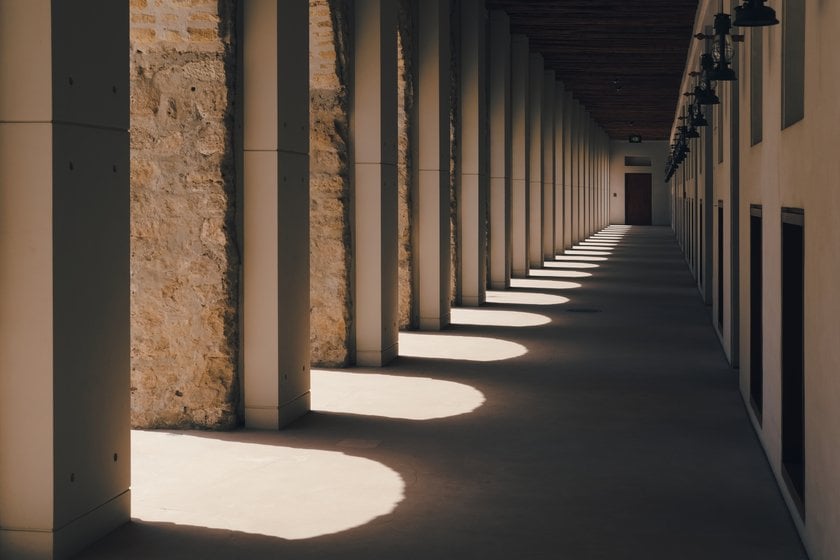
Repetition photography is a fun adventure into spotting and capturing patterns all around us. It's about turning everyday things into special and eye-catching pictures. From the orderly lines on buildings to the repeating patterns in nature or even the playful dance of shadows, repetition photography makes you see the world differently.
It's not just about snapping photos. It's a new way of seeing the world, picking out beauty we often miss in our daily lives. So, next time you take photos, try to spot the repeated patterns. It's a fun challenge and a great way to add some magic to your everyday pictures!


